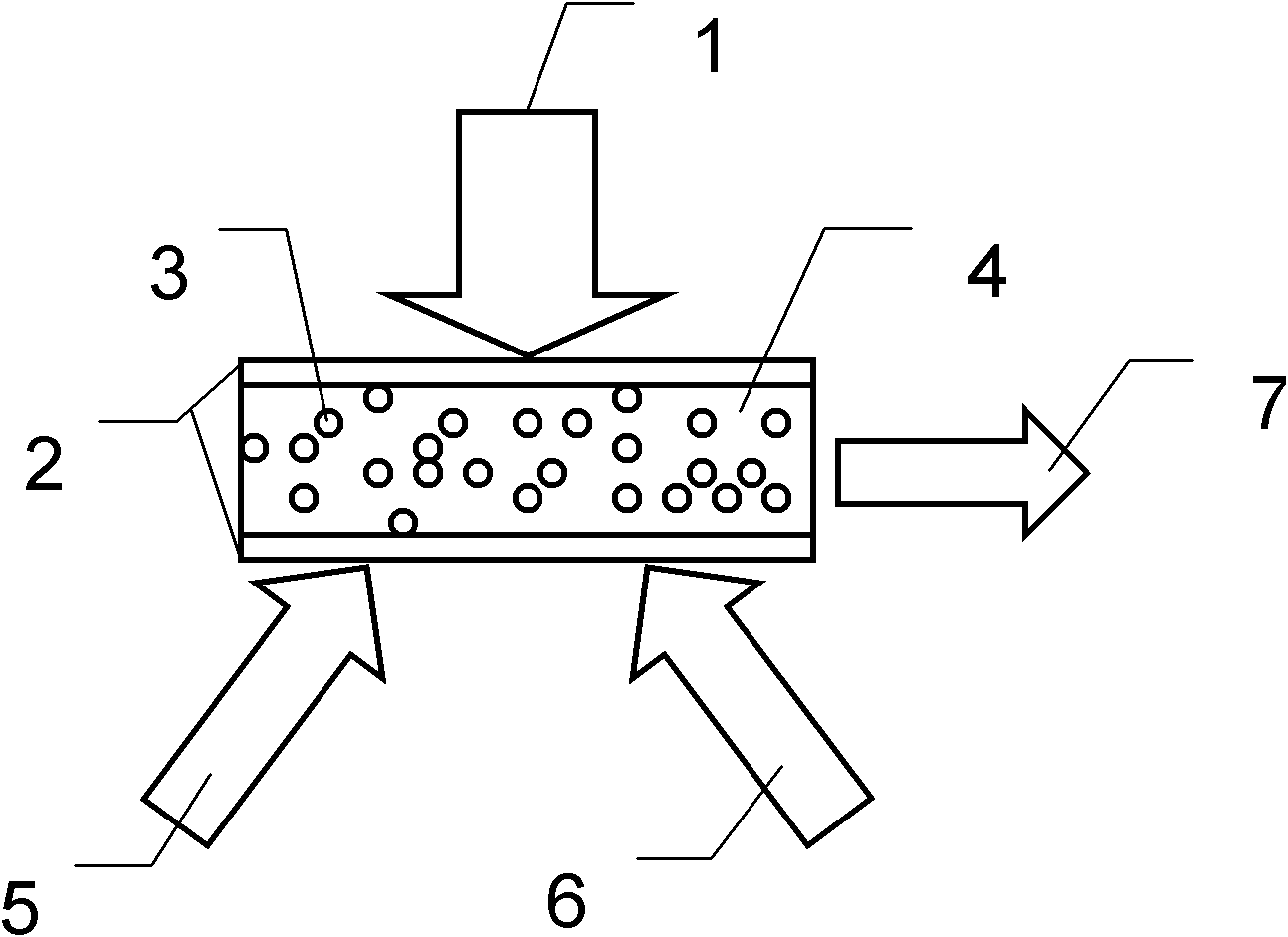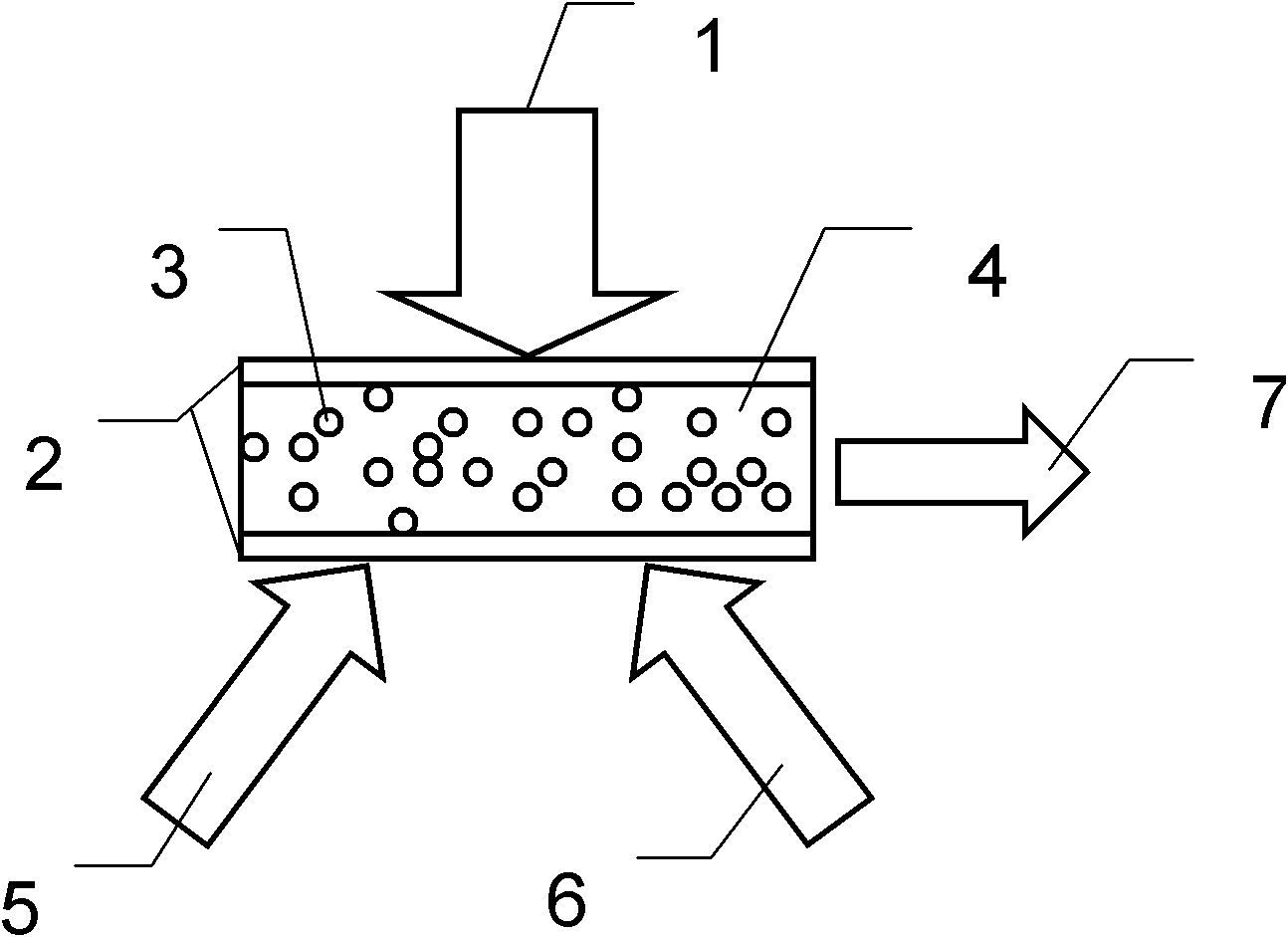Method for regulating laser emission of gain medium under all-optical control
A gain medium, optical control technology, applied in lasers, laser parts, phonon exciters, etc., can solve problems such as difficult control, and achieve the effect of convenient production and simple structure
Inactive Publication Date: 2011-06-15
SOUTHEAST UNIV
View PDF4 Cites 9 Cited by
- Summary
- Abstract
- Description
- Claims
- Application Information
AI Technical Summary
Problems solved by technology
Purpose of the invention: the purpose of the present invention is to provide a method for controlling the output laser of the gain medium with all-optical control, aiming at problems such as the difficulty in controlling the characteristics of random stimulated radiation by changing the electric field and temperature, etc., which can be controlled by Illumination effectively adjusts the intensity of random stimulated radiation to achieve dynamic control of stimulated radiation
Method used
the structure of the environmentally friendly knitted fabric provided by the present invention; figure 2 Flow chart of the yarn wrapping machine for environmentally friendly knitted fabrics and storage devices; image 3 Is the parameter map of the yarn covering machine
View moreImage
Smart Image Click on the blue labels to locate them in the text.
Smart ImageViewing Examples
Examples
Experimental program
Comparison scheme
Effect test
Embodiment Construction
the structure of the environmentally friendly knitted fabric provided by the present invention; figure 2 Flow chart of the yarn wrapping machine for environmentally friendly knitted fabrics and storage devices; image 3 Is the parameter map of the yarn covering machine
Login to View More PUM
 Login to View More
Login to View More Abstract
The invention discloses a method for regulating the laser emission of a gain medium under all-optical control, which comprises the following steps of: first irradiating a carrier with random mediums by using infrared light beams with the wavelength of lambda2 or green light beams with the wavelength of lambda3; then emitting pump light (1) with the wavelength of lambda1 from a laser, converging the pump light to form stripes by using a cylindrical lens, making the stripes incident onto the carrier, arranging a detector on the bottom edge of the carrier to receive laser emitted from the carrier, and arranging a device for adjusting the energy of the pump light at the front end of the cylindrical lens; and finally prolonging the irradiation time of the red light beams (5) or improving the irradiation intensity of the red light beams (5) to improve the intensity of stimulated emitted light (7), or prolonging the irradiation time of the green light beams (6) or improving the irradiation intensity of the green light beams (6) to improve the intensity of the stimulated emitted light (7), wherein the random mediums are liquid crystal droplets which are dispersed in the azo dye-containing laser dye gain medium. The method provided by the invention ensures fixed environmental temperature, fixed electric field, simple structure and convenience of manufacturing at the same time of ensuring that a random laser can dynamically regulate stimulated emission intensity.
Description
The control method of the output laser from the all-optical control gain medium technical field The invention relates to a control method capable of effectively changing the refractive index difference between liquid crystal microdroplets and laser dyes under all-optical control so as to change the laser emission intensity. Background technique Random lasers have received a lot of attention over the past decade due to their potential applications in photonics and biomedicine. Many disordered materials, such as TiO2 and ZnO powders, polymers, human tissue, dye-doped liquid crystals (DDLCs) and dye-doped polymer-dispersed liquid crystals (DDPDLCs) can be used to generate random lasing. With or without coherent feedback effects, coherent stochastic stimulated emission can be obtained in extended or localized modes by multiple scattering. Random stimulated emission can be generated when the accumulation of photons in the gain medium over time is sufficient that the amplificat...
Claims
the structure of the environmentally friendly knitted fabric provided by the present invention; figure 2 Flow chart of the yarn wrapping machine for environmentally friendly knitted fabrics and storage devices; image 3 Is the parameter map of the yarn covering machine
Login to View More Application Information
Patent Timeline
 Login to View More
Login to View More IPC IPC(8): H01S3/102H01S3/213
Inventor 叶莉华陈曦尹志乐张东辉崔一平
Owner SOUTHEAST UNIV
Features
- R&D
- Intellectual Property
- Life Sciences
- Materials
- Tech Scout
Why Patsnap Eureka
- Unparalleled Data Quality
- Higher Quality Content
- 60% Fewer Hallucinations
Social media
Patsnap Eureka Blog
Learn More Browse by: Latest US Patents, China's latest patents, Technical Efficacy Thesaurus, Application Domain, Technology Topic, Popular Technical Reports.
© 2025 PatSnap. All rights reserved.Legal|Privacy policy|Modern Slavery Act Transparency Statement|Sitemap|About US| Contact US: help@patsnap.com


